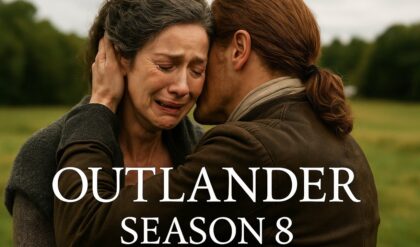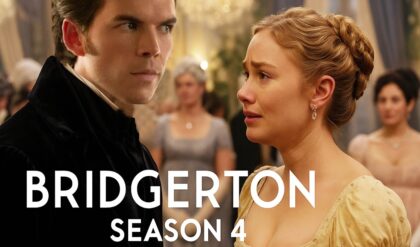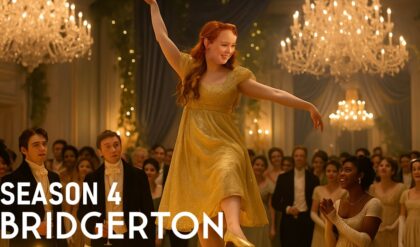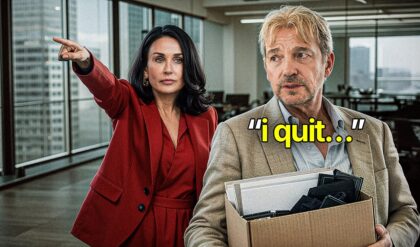In a move that has sent shockwaves through the wizarding world and beyond, several beloved actors from the Harry Potter film franchise have publicly signed an open letter pledging their unwavering support for the transgender, non-binary, and intersex communities. This powerful statement, signed by stars such as Eddie Redmayne, Katie Leung, and Paapa Essiedu, comes in direct response to a controversial U.K. Supreme Court ruling on April 17, 2025, which defined “woman” and “sex” under the Equality Act as referring to biological sex. The ruling, celebrated by Harry Potter author J.K. Rowling, has been criticized by many as undermining the lived realities of trans individuals. The actors’ decision to stand in solidarity with the trans community, despite Rowling’s vocal gender-critical stance, has sparked a heated debate about identity, legacy, and the power of celebrity influence. Here’s everything you need to know about this unfolding saga.
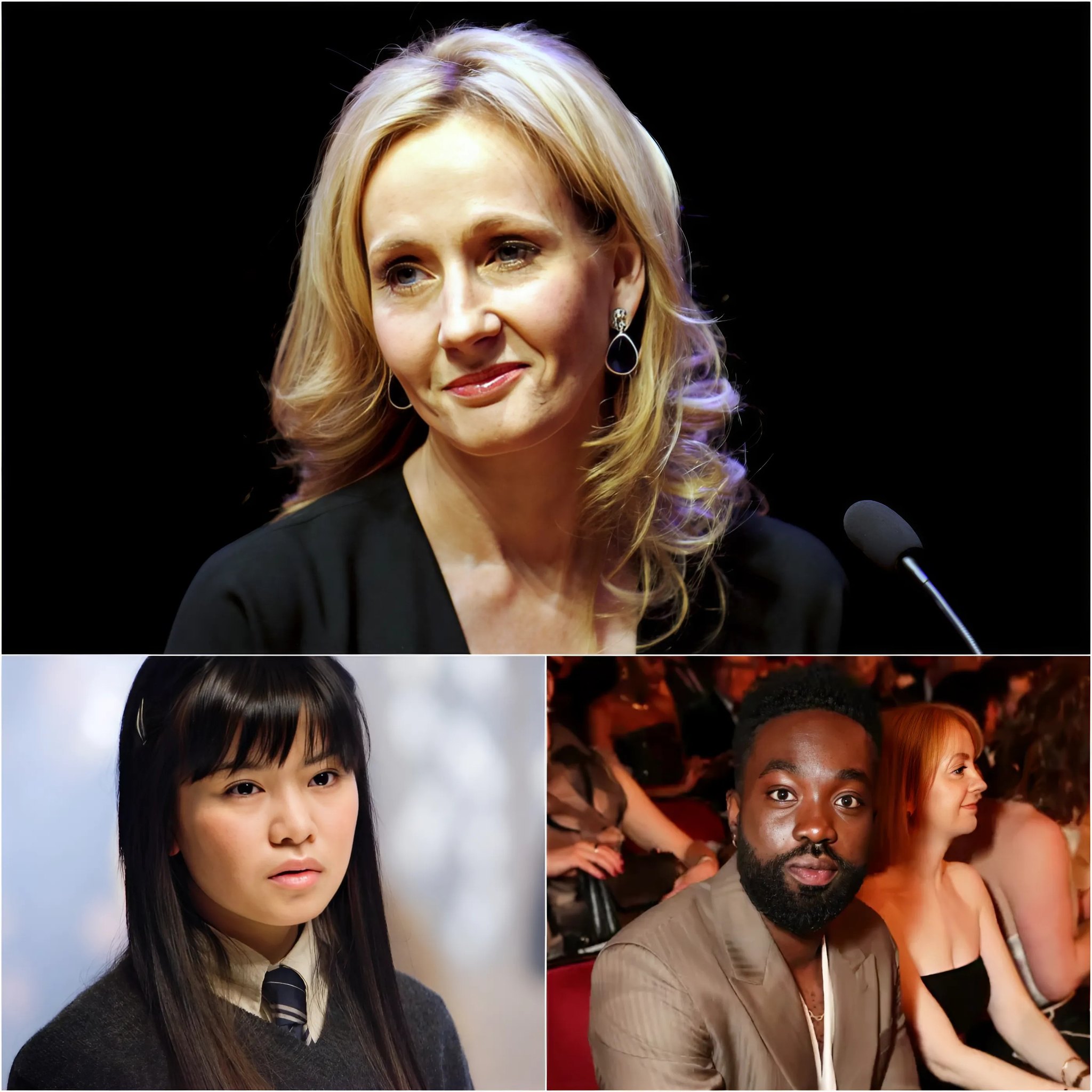
The Supreme Court Ruling and Rowling’s Reaction
The U.K. Supreme Court’s ruling clarified that, under the Equality Act, the term “woman” refers to biological females, effectively stating that “the concept of sex is binary, a person is either a woman or a man.” This decision was hailed as a victory by women’s rights campaigners, including J.K. Rowling, who has been a prominent voice in the gender-critical movement. Rowling, whose Harry Potter series has inspired millions worldwide, took to social media to celebrate the ruling, posting a photo of herself smoking a cigar with the caption, “I love it when a plan comes together,” accompanied by hashtags #SupremeCourt and #WomensRights. Her post was seen by many as a provocative endorsement of the ruling, which critics, including the LGBT+ charity Stonewall, described as “incredibly worrying” for the trans community.
Rowling’s stance on gender issues is not new. Since 2018, she has faced accusations of transphobia, beginning with her liking a tweet that referred to trans women as “men in dresses”—an action her spokesperson claimed was accidental. In 2020, she sparked further controversy by mocking a headline about “people who menstruate,” suggesting that only women menstruate. Her subsequent 3,800-word essay doubled down on her beliefs, arguing that biological sex is immutable and expressing concerns about the safety of women in single-sex spaces. Rowling has consistently denied being transphobic, asserting that she supports trans people’s right to live free from discrimination but believes that the erosion of women’s rights poses a significant risk. Her outspokenness has drawn both fierce criticism and staunch support, with fans and public figures divided over her legacy.
The Open Letter: A Stand for Solidarity
The open letter, signed by over 2,000 film and television professionals, including prominent Harry Potter cast members, was addressed to industry bodies like BAFTA and the BBC, urging them to support the trans community in light of the Supreme Court ruling. The letter stated, “We believe the ruling undermines the lived reality and threatens the safety of trans, non-binary, and intersex people living in the UK.” It called for a unified industry response to protect and affirm trans identities, emphasizing the need to stand on “the right side of history.”
Among the signatories were Eddie Redmayne, who starred as Newt Scamander in the Fantastic Beasts series and has previously spoken out against Rowling’s views; Katie Leung, known for her role as Cho Chang; and Paapa Essiedu, recently cast as Severus Snape in HBO’s upcoming Harry Potter reboot. Other signatories included Charlotte Ritchie, who appeared in Harry Potter and the Goblet of Fire, and Daisy Haggard, who voiced the Ministry of Magic lift. The letter also featured high-profile names like Bridgerton’s Nicola Coughlan, The Last of Us’ Bella Ramsey, and Happy Valley’s James Norton, amplifying its reach and impact.
The inclusion of Essiedu, who is set to star in a series where Rowling serves as an executive producer, added a layer of complexity. His decision to sign the letter was seen by some as a bold rebuke of Rowling’s views, especially given her influential role in the project. HBO defended Rowling’s involvement, stating that she has “a right to express her personal views,” but the move underscored the growing divide between the author and the actors who brought her world to life.
The Cast’s History of Speaking Out
This is not the first time Harry Potter cast members have publicly opposed Rowling’s stance. In 2020, following her controversial tweets, Daniel Radcliffe, Emma Watson, and Rupert Grint— who played Harry Potter, Hermione Granger, and Ron Weasley—issued statements supporting trans rights. Radcliffe, in an essay for The Trevor Project, wrote, “Transgender women are women. Any statement to the contrary erases the identity and dignity of transgender people.” Watson echoed this sentiment, stating, “Trans people are who they say they are and deserve to live their lives without being constantly questioned.” Grint affirmed, “Trans women are women. Trans men are men. We should all be entitled to live with love and without judgment.”
Other actors, including Bonnie Wright (Ginny Weasley), Evanna Lynch (Luna Lovegood), and Noma Dumezweni (Hermione in Harry Potter and the Cursed Child), have also voiced support for the trans community over the years. However, not all cast members have taken a clear stance. Ralph Fiennes, who played Voldemort, defended Rowling in 2021, calling the abuse she received “disgusting” and arguing that the intensity of the backlash was irrational. Evanna Lynch, while pro-trans, has expressed a desire for reconciliation, stating in 2022 that she respects Rowling as a person despite disagreeing with her views.
The open letter marks a significant escalation, as it unites a broad coalition of actors in a formal, collective action. For many, it represents a refusal to remain silent in the face of what they see as harmful rhetoric and policy. The letter’s timing, coming during a period of heightened global discussion about trans rights, has made it a focal point for both supporters and critics.
The Fan Divide and Cultural Impact
The Harry Potter franchise, which spans books, films, theme parks, and games, has long been a cultural touchstone, celebrated for its themes of acceptance, courage, and standing up to injustice. For many fans, particularly those in the LGBTQ+ community, Rowling’s views have been a painful betrayal. Trans fans like Kacen Callender, an award-winning author, have shared how Harry Potter was a lifeline during their youth, only to feel ostracized by Rowling’s rhetoric. Others, like AJ Solomon, have found solace in the fan communities built around the series, choosing to focus on the world rather than its creator.
The fan response to the open letter has been polarized. On platforms like X, some praised the actors for their courage, with posts hailing them as standing on “the right side of history.” Others accused them of disloyalty to Rowling, who they credit with launching their careers. Hashtags like #IStandWithJKRowling trended alongside the news, reflecting the ongoing divide. Fan sites like MuggleNet and The Leaky Cauldron have distanced themselves from Rowling, announcing in 2020 that they would no longer cover her personal life or opinions unrelated to the Wizarding World.
The controversy has also impacted Harry Potter-related projects. The 2021 Harry Potter 20th Anniversary: Return to Hogwarts special notably excluded Rowling, a decision that fueled speculation about her cancellation. The upcoming HBO series, with Essiedu’s casting, has faced scrutiny from both sides—some criticize Rowling’s role as executive producer, while others question the actors’ participation given her views.
Rowling’s Response and the Bigger Picture
Rowling has not remained silent. In a recent essay, she suggested that many signatories of such letters are “motivated by fear,” implying pressure to conform to industry expectations. She reiterated her belief that “nobody sane believes, or has ever believed, that humans can change sex, or that binary sex isn’t a material fact.” Her comments have further fueled the debate, with critics accusing her of dismissing trans identities and supporters praising her for defending biological realities.
The clash between Rowling and the Harry Potter cast reflects broader societal tensions over gender, free speech, and inclusivity. The Supreme Court ruling, while clarifying legal definitions, has raised questions about its practical implications for trans individuals, particularly regarding access to facilities. The Equalities & Human Rights Commission noted that trans people remain protected from discrimination, but the ruling’s impact on their lived experiences remains contentious.
For the actors, signing the letter is a statement of values, aligning with a younger, more progressive audience that sees trans rights as a fundamental issue of human dignity. For Rowling, her stance is rooted in her experiences as a survivor of abuse and her concerns about women’s safety, which she believes are being overlooked in the push for trans inclusion. Both sides claim to be fighting for justice, yet the divide seems only to widen.
What’s Next?
As the HBO Harry Potter reboot moves forward, the tension between Rowling and the cast is likely to remain a lightning rod. The open letter has elevated the conversation, putting pressure on industry bodies to take a stand. For fans, the challenge is navigating their love for the Wizarding World while grappling with the conflicting views of its creator and stars. The saga underscores the power of storytelling—not just in shaping fictional worlds but in influencing real-world debates.
The Harry Potter cast’s bold move has reignited a global conversation about identity, allyship, and the responsibilities of those in the spotlight. Whether this marks a turning point for the franchise or deepens its divisions, one thing is clear: the magic of Hogwarts is now intertwined with one of the most pressing cultural debates of our time.
